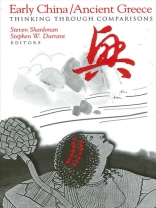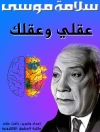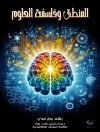The first edited volume in Sino-Hellenic studies, this book compares early Chinese and ancient Greek thought and culture.
This pioneering book compares Chinese and Western thought to offer a bracing and unpredictable cross-cultural conversation. The work contributes to the emerging field of Sino-Hellenic studies, which links two great and influential cultures that, in fact, had virtually no contact during the ancient period. The patterns of thought and the cultural productions of early China and ancient Greece represent two significantly different responses to the myriad problems that human beings confront. Throughout this volume the comparisons between these cultures evince two critical ideas. First, that thinking is itself an inherently comparative activity. Through making comparisons, the familiar becomes strange, and the strange somewhat more familiar. Second, since we think through comparisons, we should think them all the way through. How valid and productive are the comparisons and contrasts made between particular works and different styles of thought that emerged from two different, although contemporaneous, cultural contexts?
Cuprins
Introduction
Steven Shankman and Stephen W. Durrant
1. What Has Athens to Do with Alexandria? or Why Sinologists Can’t Get Along with(out) Philosophers
David L. Hall
2. No Time Like the Present: The Category of Contemporaneity in Chinese Studies
Haun Saussy
3. Humans and Gods: The Theme of Self-Divinization in Early China and Early Greece
Michael Puett
4. ‘These Three Come Forth Together, But are Differently Named’: Laozi, Zhuangzi, Plato
Steven Shankman
5. Thinking through Comparisons: Analytical and Narrative Methods for Cultural Understanding
Roger T. Ames
6. Alluding to the Text, or the Context
C. H. Wang
7. Epistemology in Cultural Context: Disguise and Deception in Early China and Early Greece
David N. Keightley
8. The Logic of Signs in Early Chinese Rhetoric
David Schaberg
9. Means and Means: A Comparative Reading of Aristotle’s Ethics and the Zhongyong
Andrew Plaks
10. Fatalism, Fate, and Stratagem in China and Greece
Lisa Raphals
11. Cratylus and Xunzi on Names
Anthony C. Yu
12. Golden Spindles and Axes: Elite Women in the Archaemenid and Han Empires
Michael Nylan
13. Creating Tradition: Sima Qian Agonistes?
Stephen W. Durrant
List of Contributors
Index
Despre autor
Stephen W. Durrant is Associate Professor of Chinese at the University of Oregon. He has also written The Tale of the Nisan Shaman: A Manchu Folk Epic.












